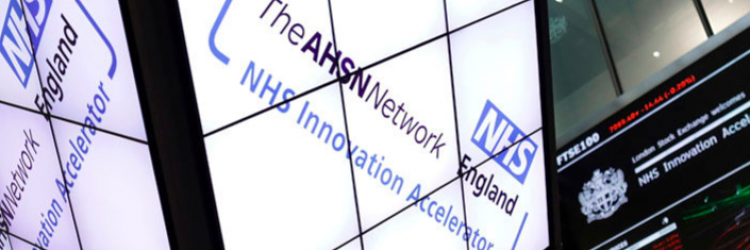Entrepreneurship and Innovation lie at the heart of the NHS and we are keen to actively encourage NHS staff from across our region to get involved
EoE Leadership in Digital Health and Entrepreneurship Fellowship Programme was launched in 2021.
The Government mandate to Health Education England outlines that HEE is responsible for workforce planning, education and training. It also states that the workforce should be ‘educated to be responsive to changing service models and responsive to innovation and new technologies with knowledge about best practice, research and innovation, that promotes adoption and dissemination of better quality service delivery to reduce variability and poor practice.’
Programme objectives in relation to the HEE mandate:
• Develop future ‘digital health’ leaders that have the skills, the knowledge and the passion to enable the adoption and spread of digital innovations in the NHS
• Provide cascade model of education where fellows share their acquired expertise with other trainees
• Provide regional support for ‘doctorpreneurs’
The applications for 2022/2023 are now closed. Please submit your queries to england.digitalandentrepreneurs.eoe@hee.nhs.uk
Dr Denys Pak
Associate Postgraduate Dean
Lead for Clinical Entrepreneurs and Emergent Tech (AI/VR)
East of England - NHS England
The Topol Review outlined recommendations to ensure the NHS is the world leader in using digital technologies to benefit patients. It will involve implementing technologies such as genomics, digital medicine, artificial intelligence and robotics at a faster pace and on a greater scale than anywhere else in the world.
NHS Long Term Plan outlines how the NHS will evolve in the next 10 years to meet the growing demand on healthcare services. Particularly, Chapter 5, emphasises the digitally enabled care as a part of this transformation.
Artificial Intelligence: How to get it right?
NHSx published a report about extraordinary opportunities for artificially intelligent systems in healthcare. This document focuses on the potential utility of AI in medicine and challenges around developing and implementing such systems in the NHS.
Digital Technology Assessment Criteria (DTAC)
The DTAC was designed for healthcare providers to assess digital health technology products at the point of procurement. It is an essential document for companies and entrepreneurs developing digital technologies for the NHS.
Understanding NHS England functions and terminology toolkit
How does the NHS in England work? What do all the acronyms mean?
The Routemap to Medtech Development Toolkit
Bringing a medical device/in vitro diagnostic product (IVD) to market is about more than just technology development. It requires the careful co-ordination of a multi-disciplinary team. This toolkit helps you to refine your own MedTech development plan and to access useful tools to help you succeed.
Intellectual Property - An Overview for NHS staff
This is an overview of Intellectual Property (IP) for NHS staff. Anyone can create IP, even in the course of their usual work, and every business has some form of IP. This document will use medical and non-medical help you identify what IP is, when you might create it, why it is important, and how to protect it. Important IP processes for NHS staff will be detailed as well as considerations if the IP is commercialised.
How to evaluate a Clinical AI paper?
This is a set of recommendations for clinical trial reports evaluating interventions with an AI component. The checklist includes 14 new items, which were considered sufficiently important for AI interventions, that should be routinely reported in addition to the core CONSORT 2010 items.
The Clinical AI Fellowship Programme activities will be delivered in collaboration with the Clinical Scientific Computing Department at Guy’s and St. Thomas’ Foundation Trust. Appointed fellows will work on the deployment and validation of AI solutions in clinical settings. East of England posts will be based at Cambridge University Hospital. Clinical AI projects will be assigned to the fellows upon appointment. Fellows will receive support from their clinical AI supervisors and, where appropriate, additional input from regional stakeholders.
Two Clinical AI Fellowship posts will be available, starting in August 2025. Fellows who are not employed by Cambridge University Hospital Trust at the time of their appointment will be issued an honorary contract in addition to their fellowship secondment arrangements.
Applications are open from 8th November 2025. Closing date: 18th December 2025
More information about the programme is available here
Dr Denys Pak
Associate Postgraduate Dean
Lead for Clinical Entrepreneurs and Emergent Tech (AI/XR)
East of England - NHS England





